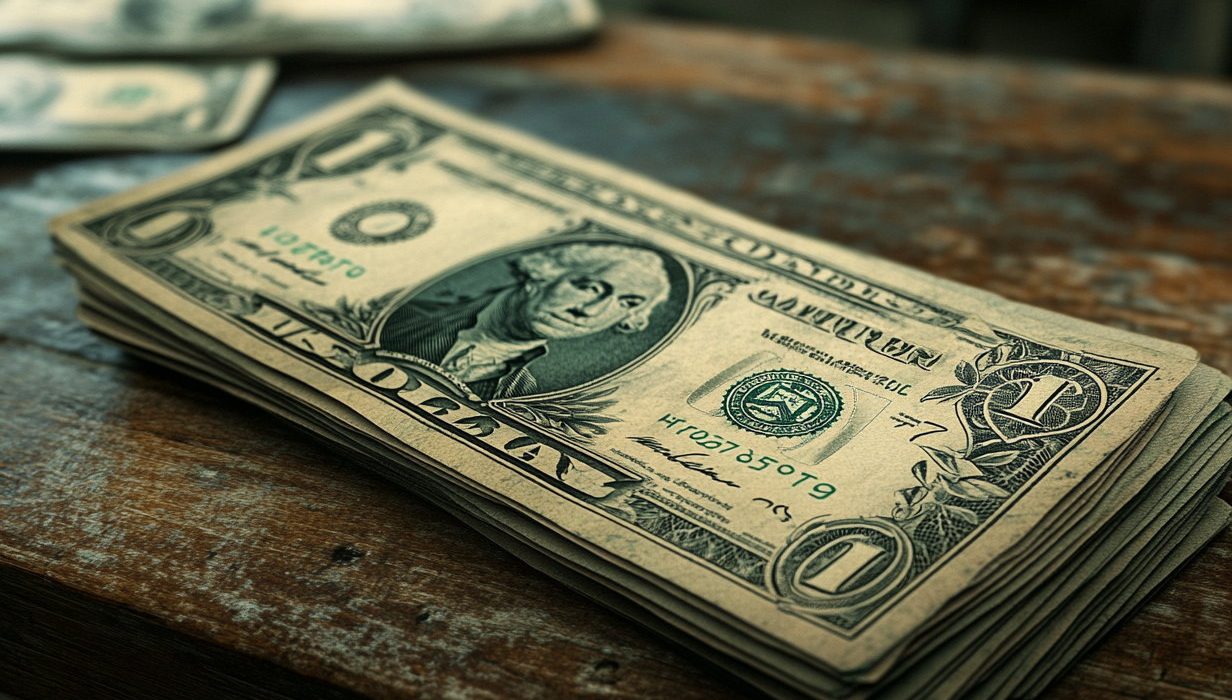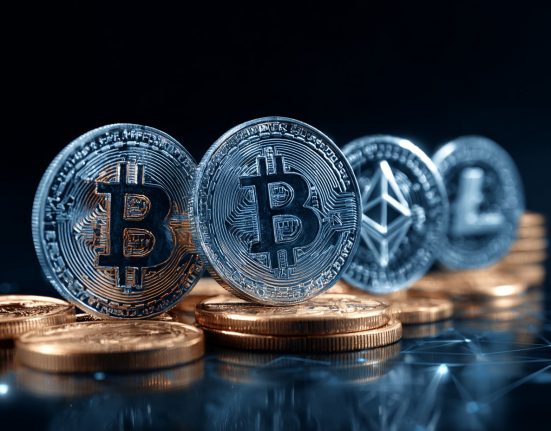The U.S. Dollar Index is down about 8% this year, but a weaker dollar could create significant investment opportunities.
After a strong close to 2024, unpredictable U.S. policy decisions, geopolitical trade tensions and a softening macroeconomic environment have sent the U.S. Dollar Index down about 8% this year through May 21.
The dollar tends to outperform when the economy is booming and the Federal Reserve is raising interest rates. However, the bond market is pricing in at least two Federal Reserve interest rate cuts in 2025. Fortunately for investors, a weaker dollar could create significant investment opportunities. Here are seven ways to invest in a falling dollar:
U.S. Companies Generating International Sales
A weaker dollar can be good news for U.S. companies with international business.
When the dollar is strong, companies generating international sales effectively earn fewer dollars and generate lower earnings than expected. However, a weaker dollar means goods and services being purchased with dollars become more expensive for the consumer.
Michael Unger, vice president of investments and planning at Coral Gables Trust, says a declining dollar can create a favorable environment for U.S. companies that earn a large share of their revenue abroad.
“It’s important to note that tariffs may offset these advantages, as they can raise costs for domestic manufacturers, potentially limiting the positive impact of a weaker dollar,” Unger says. “As such, investors should continue to focus on companies with clear earnings growth trajectories, strong cash flow generation, pricing power and the ability to maintain market share irrespective of the environment.”
Qualcomm Inc. (ticker: QCOM), Schlumberger Ltd. (SLB) and Aflac Inc. (AFL) are just three examples of U.S. stocks that generate a sizable portion of total revenue overseas.
Commodities
Since most commodities traded on international markets are priced in dollars, a weaker dollar means higher commodity prices. As the dollar falls in value, it takes more weaker dollars to purchase a commodity, driving the commodity’s price higher. Likewise, dollar-based commodity prices must rise to match the effective price of global competitors pricing commodities in other currencies.
Crude oil prices have historically had a particularly negative correlation with the U.S. Dollar Index.
Investors looking to bet on commodities in 2025 can buy popular commodities funds, such as the Invesco Optimum Yield Diversified Commodity Strategy No K-1 ETF (PDBC) and the United States Oil Fund (USO).
Gold
Like commodities, gold is generally priced in dollars. The dollar is no longer backed by physical gold, but the value of the dollar is one of many factors that impacts gold’s value. Gold prices have soared in recent years as investors use the precious metal to hedge against inflation. However, investors also use gold as a stable store of value during periods of currency volatility.
To avoid losses tied to a declining dollar, investors can buy shares of the popular SPDR Gold Trust (GLD) or the more volatile VanEck Gold Miners ETF (GDX).
Cryptocurrencies
Investors with the stomach for extreme volatility can invest in Bitcoin (BTC), Ethereum (ETH) and other popular cryptocurrencies to play a weaker dollar. The price of cryptocurrencies is typically denominated in dollars, and many investors see Bitcoin and other cryptos as digital versions of currencies or commodities. In the long term, Bitcoin has been an exceptionally good investment, but its extreme volatility is not for the faint of heart. In fact, Bitcoin has not had a calendar year in which it gained or lost less than 60% in value since 2015.
Emerging Markets
In addition to U.S. stocks doing business overseas, international companies with relatively low exposure to the U.S. market also benefit from a weaker dollar.
Investors who want to take an aggressive approach to investing in international stocks can target emerging markets, such as China, India and Brazil. The Vanguard FTSE Emerging Markets ETF (VWO) is one of the largest and lowest-cost emerging-market exchange-traded funds around.
Martin Schulz, senior vice president and head of international equity group at Federated Hermes, says he is bullish on emerging markets as the dollar weakens.
“The emerging markets will benefit from a weaker dollar as global liquidity conditions improve in addition to China – the largest single market by far – witnessing a cyclical upswing with positive growth-oriented policy support,” Schulz says. “While geopolitical and trade risks remain elevated, Chinese tech companies remain undervalued, are domestically oriented and are leveraged to the economic recovery.”
International Stocks
Investors can also mitigate risks associated with high-growth emerging markets by focusing on developed international markets, such as Europe, Japan and South Korea. In addition to protecting against a weaker dollar, international stocks can diversify your investment portfolio away from U.S. stocks and the U.S. economy. Developed markets won’t provide the type of growth emerging markets will, but their economies are typically more stable and reliable. The Vanguard FTSE Developed Markets ETF (VEA) is a popular fund for diversified exposure to international developed markets. The fund’s top holdings include stocks like Nestlé SA (OTC: NSRGY), ASML Holding NV (ASML) and SAP SE (SAP).
Jeep Kline, a professor at the University of California, Berkeley, and founder and managing partner at Raisewell Ventures, says an unstable dollar brings uncertainty to domestic U.S. stocks.
“If the dollar continues to weaken, it makes sense for investors to consider more investments internationally,” Kline says.
However, Kline says U.S. investors shouldn’t consider international stocks 100% immune from dollar weakness.
“While (international investments) may support portfolios in the short term, a weaker dollar may ultimately fuel inflation, which will not provide anywhere to hide,” Kline says.
International Currency ETFs
One of the most straightforward ways to profit from a weaker dollar is to invest in other fiat currencies. Foreign-exchange traders can make bets on currency pairs directly, but there are also publicly traded trusts and funds that allow investors to buy and sell international currencies just like stocks. For example, the Invesco CurrencyShares Euro Trust (FXE) is an easy way to bet on the euro, while the Invesco CurrencyShares Japanese Yen Trust (FXY) provides exposure to the yen.
However, currency investors should understand that these pairs are a zero-sum game. These international currencies will gain value only during periods of dollar weakness and will lose an equal and opposite amount of value during periods of dollar strength.







